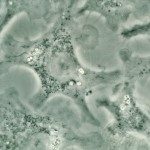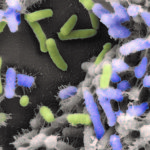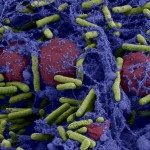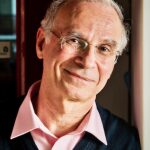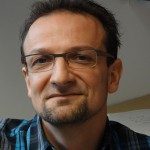Link to Pubmed [PMID] – 19710099
Innate Immun 2010 Oct;16(5):288-301
To determine whether growth of bacteria in biofilms triggers a specific immune response, we compared cytokine induction in human monocytes and mouse macrophages by planktonic and biofilm bacteria. We compared Pseudomonas aeruginosa and Staphylococcus aureus, two bacteria often colonizing the airways of cystic fibrosis patients. Planktonic and biofilm S. aureus induced equivalent amounts of cytokine in human monocytes. In contrast, biofilm-forming P. aeruginosa induced a higher production of tumor necrosis factor and interleukin-6 than their planktonic counterpart, both for clinical isolates and laboratory strains. This increased cytokine production was partly dependent on phagocytosis. In contrast, no difference in cytokine induction was observed with mouse macrophages. We investigated the structures of the lipopolysaccharides (LPSs) of these Gram-negative bacteria in biofilm and planktonic cultures of P. aeruginosa. Switch between the two life-styles was shown to cause several reversible LPS structure modifications affecting the lipid A and polysaccharide moieties of both clinical isolates and laboratory strains. In addition, LPS isolated from biofilm-grown bacteria induced slightly more inflammatory cytokines than that extracted from its planktonic counterpart. Our results, therefore, show that P. aeruginosa biofilm LPS undergoes structural modifications that only partially contribute to an increased inflammatory response from human monocytes.
